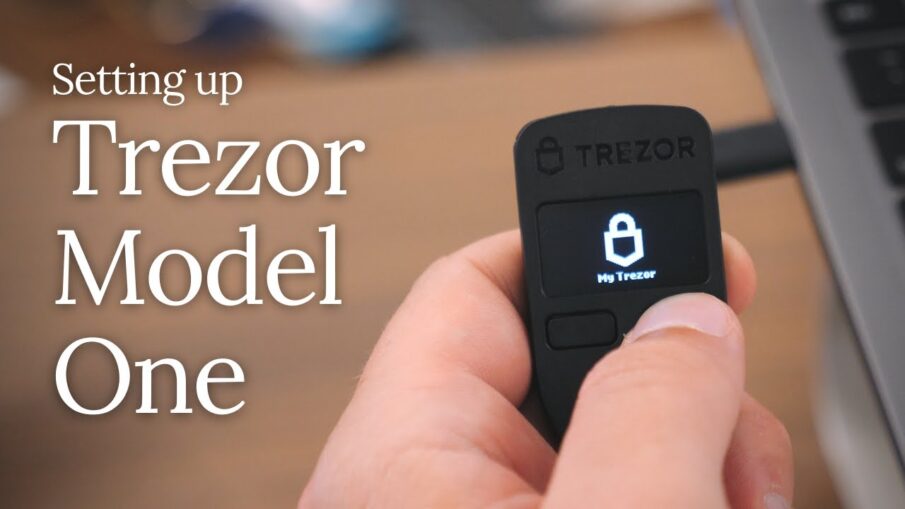In the rapidly evolving world of cryptocurrency, security has become one of the most pressing concerns for both new and seasoned users. With the rise of digital assets comes an increasing risk of theft, hacking, and fraud. Among the myriad solutions available to protect cryptocurrencies, Trezor has emerged as one of the most trusted names in the field of hardware wallets. Founded in 2013 by the Czech-based company SatoshiLabs, trezor wallet has earned a reputation for its robust, user-friendly design, and cutting-edge security features.
What is Trezor?
Trezor is a hardware wallet designed to securely store and manage cryptocurrencies offline. Unlike traditional software wallets, which store private keys on an internet-connected device, a hardware wallet like Trezor keeps these sensitive keys on a physical device that is disconnected from the internet. This added layer of security ensures that even if a user’s computer or smartphone is compromised, the private keys to their digital assets remain safe.
The wallet is compatible with a wide variety of cryptocurrencies, including Bitcoin, Ethereum, Litecoin, and many others. It can be used to sign transactions and manage multiple cryptocurrency accounts, all while offering a high level of protection against online threats.
The Evolution of Trezor
Trezor’s journey began with the introduction of its first model, the Trezor One, in 2014. This compact device was hailed as one of the first of its kind, offering an effective solution for individuals looking to protect their crypto holdings. The Trezor One supported a wide array of coins and provided a user-friendly interface for managing them, making it a standout choice in the nascent cryptocurrency security space.
In 2018, the company launched its successor, the Trezor Model T. This new model was designed with enhanced functionality, featuring a color touchscreen, a more powerful processor, and greater support for a wider range of cryptocurrencies and tokens. The Model T was also built with improved security features, such as a more advanced chip and a customizable PIN code.
As cryptocurrencies became more diverse, Trezor continued to adapt, adding new support for altcoins, and integrating with third-party services like cryptocurrency exchanges and portfolio management tools. This flexibility helped Trezor maintain its position as a leader in the hardware wallet market.
Key Features of Trezor
Trezor’s reputation for security rests on several key features that distinguish it from other hardware wallets:
- Offline Storage: Trezor’s greatest strength is its offline storage of private keys. Since it is a hardware wallet, the device is disconnected from the internet, making it nearly impossible for hackers to access the private keys remotely.
- Secure Backup: Trezor provides users with a recovery seed – a 12 to 24-word backup phrase that can be used to recover funds in case the device is lost, stolen, or damaged. This phrase is critical to the recovery process, and users are advised to store it securely, away from the device.
- PIN Protection: The device is secured with a PIN code, which ensures that only authorized users can access it. Even if the device is lost or stolen, the PIN must be entered to unlock the wallet.
- Passphrase Support: For even greater security, Trezor allows users to add an optional passphrase to their wallet. This passphrase acts as an additional layer of protection and can be used to create a hidden wallet within the device.
- Open-Source Software: Trezor’s software is open-source, meaning anyone can inspect, modify, and verify the code. This transparency promotes trust and ensures that the wallet is free from malicious backdoors.
- Multi-Currency Support: Trezor is compatible with a wide range of cryptocurrencies, from Bitcoin to Ethereum, Litecoin, and many others. The device supports over 1,000 coins and tokens, making it a versatile option for users with diverse portfolios.
- Two-Factor Authentication: Trezor works in conjunction with services like Trezor Password Manager to support two-factor authentication (2FA), adding an additional layer of security to online accounts and transactions.
Security and Privacy
Trezor’s focus on security goes beyond the physical device. The company emphasizes privacy for its users by never storing sensitive data such as private keys or recovery phrases on their servers. Trezor also supports multisignature (multi-sig) wallets, which require multiple keys to authorize a transaction, further reducing the risks of theft.
Trezor’s commitment to security extends to its firmware updates, which are regularly issued to address vulnerabilities, improve functionality, and ensure that the wallet remains safe in an ever-changing digital landscape. Users are notified when updates are available and can install them directly via the Trezor interface.
Trezor vs. Competitors
Trezor is often compared with its main competitor, Ledger, which also produces hardware wallets. While both offer similar core features, such as offline storage of private keys and multi-coin support, Trezor distinguishes itself with its user-friendly interface and focus on transparency. Trezor’s open-source software and strong emphasis on privacy appeal to those who are looking for greater control and security over their cryptocurrency holdings.
Why Choose Trezor?
There are several reasons why users might opt for Trezor as their preferred hardware wallet:
- Security: Trezor’s offline storage and PIN protection make it one of the most secure options available for protecting digital assets.
- Ease of Use: With its intuitive interface and compatibility with multiple platforms, Trezor makes managing crypto portfolios straightforward and hassle-free.
- Versatility: Trezor supports a wide range of cryptocurrencies, ensuring that it can meet the needs of users with diverse portfolios.
- Proven Track Record: Trezor has built a solid reputation over the years, and its consistent updates and improvements reinforce its position as a trusted leader in cryptocurrency security.
Conclusion
As the cryptocurrency industry continues to grow, so does the need for secure storage solutions. Trezor has firmly established itself as a leading provider of hardware wallets, thanks to its innovative features, commitment to security, and user-centric design. Whether you’re a first-time crypto investor or a seasoned trader, Trezor offers a reliable and secure way to protect your digital assets.

